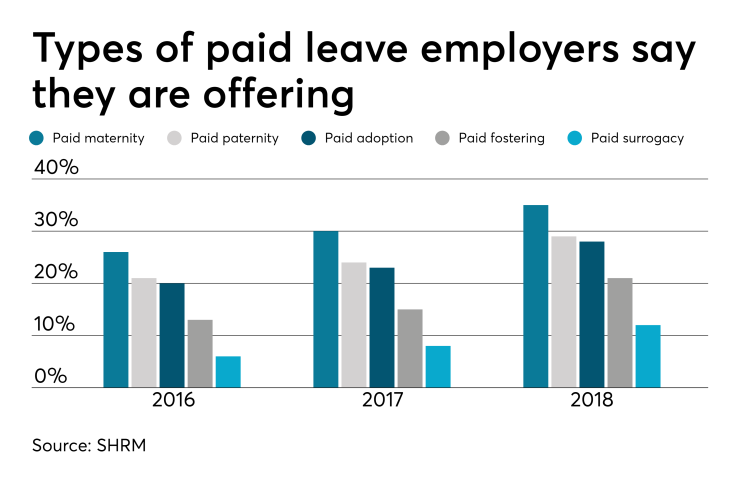Connecticut is on track to become the seventh U.S. state to offer paid family leave to workers. If signed, the bill, passed in late May, would give employees in the state 12 weeks of paid time off to care for a new child, a sick family member or a personal illness.
The legislation comes as momentum for paid leave is growing, and mandatory laws have gained more ground over the last few years. But only six states — California, Rhode Island, New York, New Jersey, Washington, Massachusetts — and the District of Columbia have passed paid family leave laws to date.
“We all agreed on the need to pass this landmark support for working families so they don’t have to choose between the job they need and the family they love, or their own health,” Connecticut Gov. Ned Lamont said in a statement.

Starting in 2021, the paid family leave would be funded by a payroll tax of 0.5%. The law would cover 95% of an employee’s weekly wage up to 40 times the state minimum wage, plus 60% of the worker’s average weekly wage exceeding 40 times the minimum wage. The governor’s office did not immediately respond to a request for a comment about the details of the policy.
See also:
During his
Bipartisan federal legislation on paid family leave could be on the horizon. In the beginning of April, Sen. Bill Cassidy, R-La., announced he would work alongside Sen. Kyrsten Sinema, D-Ariz., to develop a
“We have to be mindful of both the employer and employee as we craft this,” Cassidy says.
The U.S. is the only developed country in the world with no federally mandated paid family leave. New parents are guaranteed time off from work under the Family and Medical Leave Act, but making ends meet can be a struggle if their leave is unpaid.
See also:
Meanwhile, employers have been investing in new paid parental leave policies. The number of employers offering the benefit jumped to 27% in 2018 from 17% in 2016, according to the Society for Human Resource Management. For example,
While the number of companies offering paid family leave is increasing, many employers are against a
Connecticut’s Lamont says he plans to sign the new bill as soon as possible. Workers should not have to choose “between the job they need and the family they love, or their own health,” he adds.
“This is the right thing to do for our state, and I’m grateful that we were able to come to an agreement and do what is best for the people of Connecticut,” he says.





